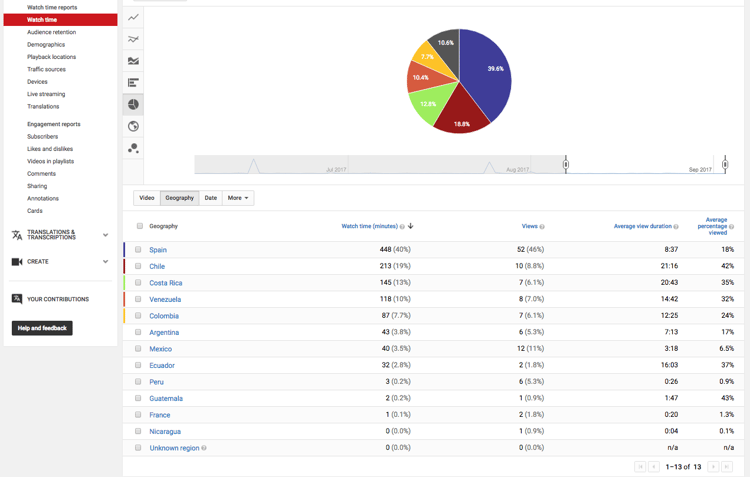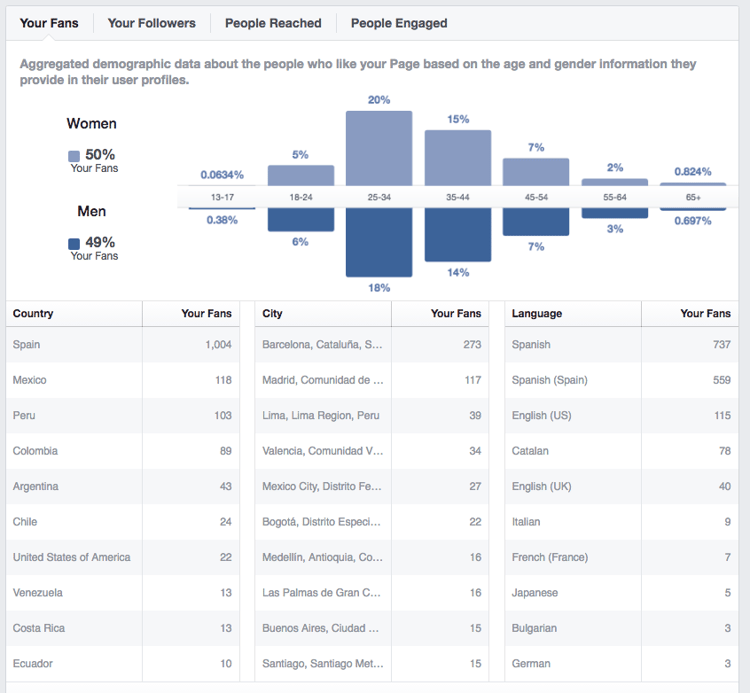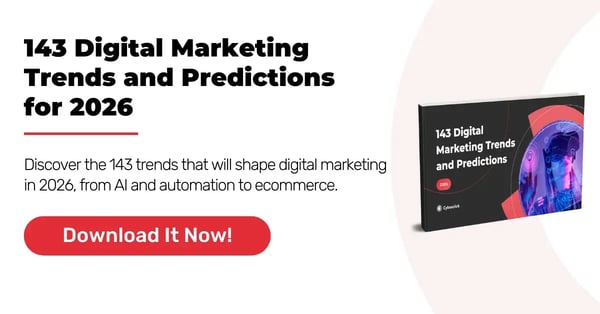- Home
- Cyberclick Academy
- Marketing
- Digital Marketing
What Is Digital Marketing or Online Marketing?
Marketing Content
- What Is Marketing? Definition, Benefits, and Strategies
- What Is a Marketing Plan and How Can You Create an Effective One?
- What Is Email Marketing and How Can You Incorporate It into Your Marketing Strategy?
- What Is Digital Marketing or Online Marketing?
- What Is Direct Marketing? Benefits, Steps, and Examples
- What Is Viral Marketing? How It Works and Its Advantages
- What Is Mobile Marketing and What Are Its Advantages?
- What Is Performance Marketing?
Index
What Is Digital Marketing or Online Marketing?
Digital marketing has the same objectives as traditional marketing but differs in that it takes advantage of current technologies and the internet. It allows advertisers to promote a product or service online on a variety of platforms and with the help of strategic tools, all of which must be aligned with the company’s overall marketing strategy.

4 Things to Know Before Launching a Digital Marketing Campaign
Want to launch a digital marketing campaign but not sure where to start? Don't worry, we’re going to provide you with 4 essential components to keep in mind before your company invests in marketing. If you are in the hands of a digital advertising agency, they will be the ones responsible for correctly advising you. This is how we do it at Cyberclick.
User Experience
The website or landing page that hosts your product/service needs to work incredibly efficiently. The page's usability should facilitate the process of conversion and be very intuitive. If your bounce rate increases, it will be necessary to revisit your design and user experience.
Template and Graphic Design
People are visual, and therefore the design of your website needs to be visually attractive as well. Your product/service should be clearly featured along with any corresponding information. Try to make everything clear, neat, direct, and attractive (though not over-the-top). Make your consumer fall in love with your product, your brand, and your site!
Search Engines
These are in charge of gathering all of the internet’s vast knowledge and indexing it to facilitate user searches. How can you integrate search engines into your digital marketing strategy? There are two ways: SEO and SEM. The former refers to the organic (or natural) positioning of your web pages on search engines. The latter ensures that you appear in the paid results section of a search. This content will be labeled as "pay-per-click” (PPC) or “promoted ad.”
Promotional Actions
The internet offers exclusive channels just for digital marketing. These include social ads (e.g. Facebook Ads, Instagram Ads, or LinkedIn Ads), branded content/content marketing (e.g. blogs, other online media outlets, etc.), email marketing, trigger marketing, mobile apps, and online advertising (e.g. banners).
How to Create a Digital Marketing Plan
- The environment. Research your market and make sure to study the competition before starting to put together your strategy.
- Audience. Make sure you know who you’ll be marketing to. In doing this, you’ll be able to clearly define your target audience and create the right segmentation so that the ads make a sizable impact.
- Goals and objectives. What do you want to achieve? Make sure to align your online marketing goals with your company’s overall objectives.
- Strategy. Having a strategy gives you a comprehensive vision of everything you do, so implement your strategy with both creativity and a clear message so that it reaches far and wide.
- Sales. Figure out which steps turn a user into a client, keeping in mind the conversion funnel and the buyer journey.
- Loyalty. Getting a new client isn’t easy but neither is retaining one you already have. Make sure to work on retaining brand loyalty in the long run. Tools like customer loyalty programs and remarketing can help with this.
- Budget. Divide your budget into different marketing channels. Always keep in mind where you will have the biggest impact on your audience.
- Technology. The online environment offers many tools. Use them and get the most out of your budget! We are in the digital marketing and startup era, so keep this in mind when creating a digital marketing strategy.
- KPIs. Clearly define your metrics or key performance indicators (KPIs). This way, you will be able to measure how everything evolves and if any variable doesn’t meet your expectations, modify it in real time. KPIs are all about fully optimizing a campaign every step of the way without substantial budget loss. They aim for the best possible return (with an adjusted cost).
- Conclusions. Metrics + results = the ability to draw conclusions. By following this equation, you can constantly improve your marketing strategy.
Implementing a Digital Marketing Strategy
Having gone through all of the previous points, where do we go from here?
We're going to discuss how to implement a digital marketing strategy. Of course, don’t forget to determine your goals, your audience segments, and your budget.
1. Have an Optimized Website
If you already have a website or a landing page, a digital marketing agency like Cyberclick can help you optimize and improve elements such as text, images, forms, the way you highlight your product or service, and the layout of the entire interface. Furthermore, we can help you improve your web design. The website should be intuitive, attractive, and easy to navigate.
If you don't have a website, we can start from scratch by using our vast experience and knowledge. Assuming this website is where visitors will go and where you hope to gain customers, request information, or include a call to action.
2. Bring Traffic to Your Website
Here is where we start the digital marketing campaign. All of the actions and channels need to be well defined and a budget should be allocated for each parameter. The moment ads are activated, traffic will begin to flow to your website. By specializing in traffic acquisition and performance marketing, we can ensure our clients achieve great results.
3. Use of Search Engine Optimization
When we design the text of a landing page or a website, we always do it based on SEO. We highlight certain keywords so that a site is better positioned in organic searches. We do this to attract potential visitors who may be interested in your product or service. There is also SEM (promoted ads) which could also prove useful in your digital marketing strategy. Both Google and Yahoo can end up being crucial components for making sales in certain campaigns and certain sectors.
4. Social Media Channels
Humans are social by nature and we love to be in contact with each other. Since we love to socialize, it makes complete sense that within the last decade social media has had incredible success. The majority of users are on Facebook, X, Instagram, or LinkedIn, so companies should also be connected via their business profiles in order to make the most of one of digital marketing’s most powerful tools-- social ads.
5 Tools That Will Help You Know Your Clients Better
The first step to listening to your audience and paying attention when they talk to you (and responding to them!). But don't stop there. Get outside of your own marketing channels and learn more about who your customers are, and what they want, think, and feel. If you need some guidance, these 6 digital marketing tools will help you along the way.
1. YouTube Analytics
How long has it been since you've taken an in-depth look at your YouTube analytics? If you're like most marketers, you probably overlook this resource, but you can get a lot of information about your audience here.
To learn more about who watches your videos, click on the demographics tab. Here you will find information about the gender, location, and age of your audience. Is it what you expected, or were there some surprises? Either way, use this data to better define your buyer personas.
Another very useful section is the retention rate, which shows the average time users spend watching your videos and when they abandon them. If your rate is below 25%, it's time to rethink your content strategy and make different videos.

2. Facebook Audience Insights
Unlike YouTube analytics, Facebook analytics are used by most marketers. However, you may not have thought of using them to learn more about your customers and not just to measure the success of your Facebook page.
To see these statistics, go to the Facebook Ads tool and click on Tools. You'll find this option in the drop-down menu at the top right.
Once there, you will be able to see data about your audience's age and gender, location, education level, relationship status, and even profession.

3. Google Consumer Surveys
Accessible market research is here thanks to Google Consumer Surveys! Just specify your audience demographics (age, location, family structure, income, etc.) and set up your questions. In a matter of days, you'll have plenty of answers that will give you a much better idea of what your audience is looking for.
Google Surveys is a paid service, but it's quite cheap (it starts at 10 cents per answer). With the right questions, it's definitely worth the investment.
4. Google Trends
If you need to refine the topics that interest your audience, Google Trends can be very helpful. This digital marketing tool displays interest in a specific term over time. For example, if your business is a travel company, you may want to compare different destinations to see which ones are trending this year.
You can also investigate the related search options. If in the example above you found out that traveling to Thailand is trending, here you could find more detailed, specific searches like "travel to Thailand with kids". This will help you better understand what your audience is looking for.
5. Google Analytics
Google Analytics is the digital marketing tool that everyone uses, but not everyone takes advantage of its true potential.
By combining Google Analytics with Webmaster Tools, you will be able to see in detail what keywords people use to find your site. This can give you ideas about what they expect from your brand. Another very useful thing you can do is to set up your conversion funnel (the different pages a user goes through before purchasing) and analyze where the most abandonment occurs and why.
If you want to get the best results from of your digital marketing investment, make sure to follow all these steps. Also, if/when the time comes for you to turn to a digital marketing agency, don’t hesitate to ask us for help!


